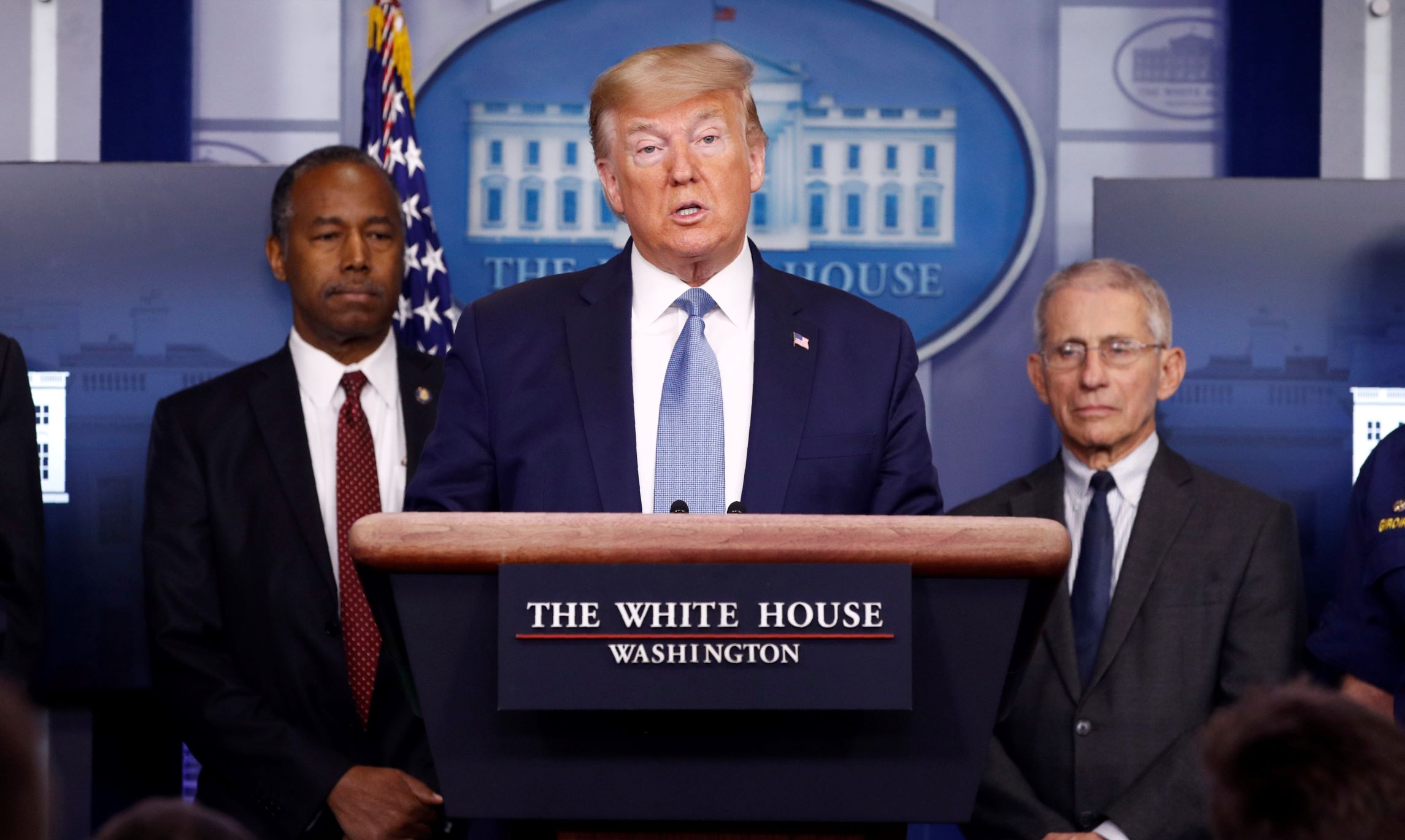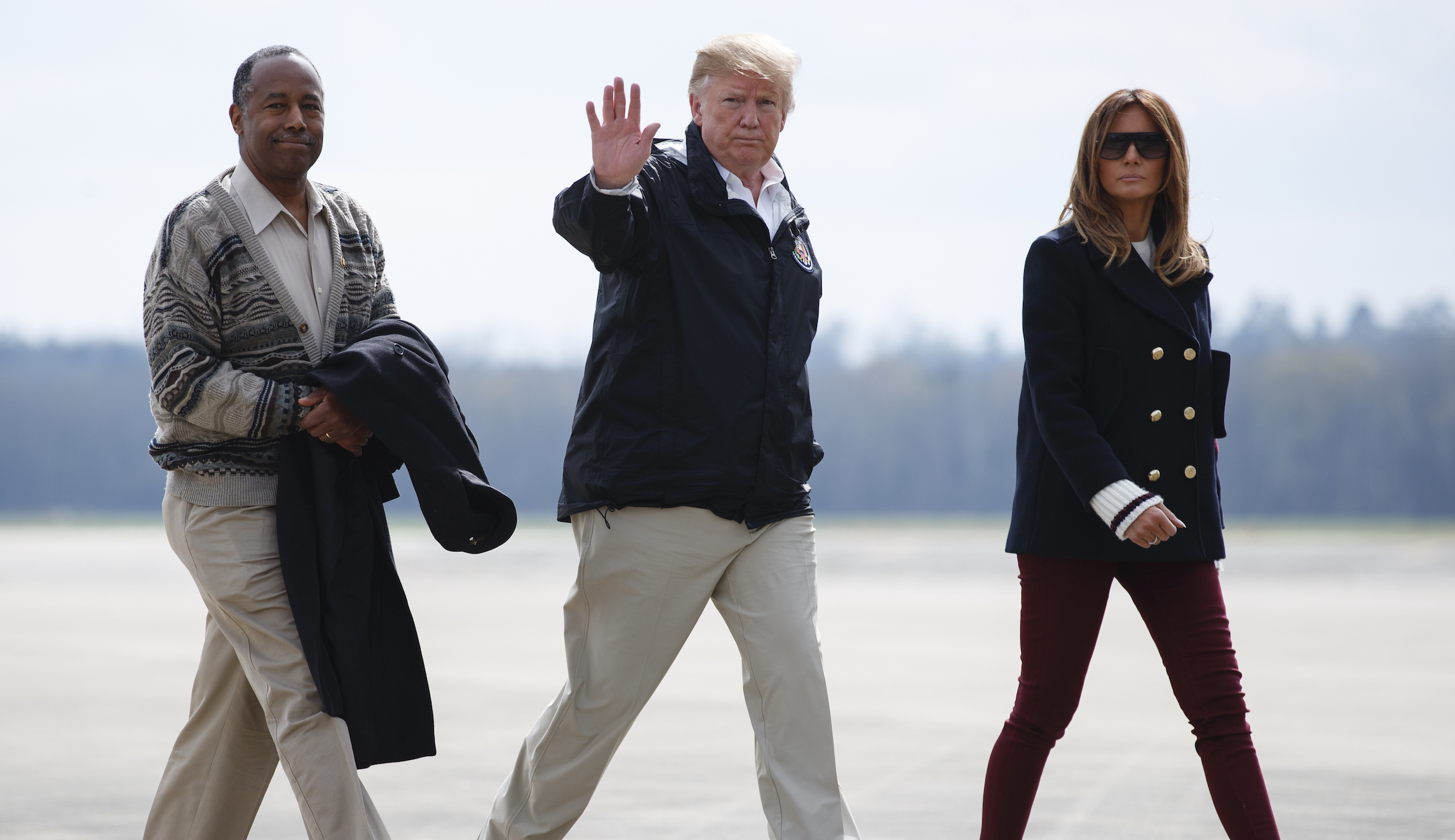Ben Carson was a reluctant recruit to the Trump administration. He had to be asked several times.
“I have a surgical personality. Surgeons like to get stuff done,” he said with the quiet understatement of someone who has separated conjoined twins. “We don’t like to talk about it forever or get bogged down with bureaucracy.”
But the more he thought about heading the Department of Housing and Urban Development, the more he realized there was a job to be done.
Four years later, the 69-year-old is proud of his achievements in cleaning up a muddled bureaucracy, overhauling an antiquated IT system, and developing a string of programs shot through with the Carson brand of self-reliant conservatism. He even has a new-found respect for government workers. And after leaving office, he plans to work on some of the same issues with a new think tank to foster bipartisan agreement when he leaves office.
For a surgeon used to precision and scientific methods, the department’s sprawling remit, a $47 billion-a-year operation delivering rental assistance to 5 million families and overseeing more than a million units of public housing, and its management structures came as a shock.
“I immediately recognized that the financial underpinnings were in shambles, and if those were in shambles, then all of the grant programs and everything associated with it, by definition, were in shambles,” he said.
The only good thing about the archaic IT system was that it was too antiquated to hack.

To remedy the mess, he brought in Irving Dennis from Ernst & Young as chief finance officer and David Chow from the fintech world as chief information officer.
The result is a streamlined system and a financial dashboard to monitor where the money is going in real time.
For the first time in eight years, the department was given a clean audit by the Office of Inspector General.
“We have built in alarm systems so if things are not being spent as they should be, we get notification right away, as opposed to three years later, trying to figure out what went wrong, and it allows us to push out programs faster,” said Carson.
By way of example, he cited the Foster Youth to Independence initiative. It was launched four months after he met a group of young people who described the troubles faced by teenagers who “age out” of the system at 18.
Carson said he was horrified to hear that 20,000 young people were leaving care without the support they needed. Within four years, a quarter were homeless.
“Can you image at 18 being out there on your own, without family or support systems?” he asked.
Since then, more than $8 million has been spent on housing vouchers and services to help more than 1,000 young people get set up in life.

“It’s the sort of things a family would provide for somebody at that age to get moving on the right trajectory,” said Carson, who frequently credits the “stand on your own two feet” philosophy of his mother for developing his conservative principles.
He was also responsible for one of Trump’s pet programs. Opportunity Zones offer tax breaks to investors putting money into more than 8700 disadvantaged areas in order to bring development and jobs to neglected communities.
But the project attracted scores of negative headlines and story after story about how the president’s wealthy developer friends would benefit.
Carson shrugged off the criticism, pointing out that a White House assessment last year estimated that the program had attracted $75 billion in its first two years and would lift a million people out of poverty.
“You have to realize that people are going to be investing their money in something anyway,” he said. “If you can get them to invest that in areas that are neglected, what a winning situation you have there.”
He hopes the incoming administration will take a deeper look at the work he has done rather than relying on partisan assumptions.
“I think [the transition] are seeing as they look under the cover, the rationale for a lot of things we have done … and in some cases been demonized for,” he said.
One example is repealing the Obama-era Affirmatively Furthering Fair Housing rule. It was the regulation that Trump liked to attack on the campaign trail, accusing Democrats of trying to “destroy the beautiful suburbs.”
In fact, it was a checklist of 92 questions designed to make local jurisdictions track and address patterns of poverty and segregation, or lose federal funds, and so promote racially just housing policy.
Scrapping it last year attracted accusations of racism. Yet many local authorities, both red and blue, found the requirement burdensome. Some opted out altogether, forgoing federal money, rather than pay out the thousands of dollars in consultants’ fees needed to comply.
“We really want to put the control back in the arms of the local community,” said Carson. “They know a lot more about what needs to be done in order to address the needs of the whole community than a bunch of bureaucrats in Washington, D.C.”
Some of the same issues will be at the core of his life after office. He is setting up the American Cornerstone Institute, a think tank that aims to prioritize evidence and data in policymaking.
“A major thing we want to do is analyze policies from both sides of the political spectrum and see how they can be melded into something that works for everybody,” he said. “We don’t spend enough time thinking about how we can work together. Instead, we have a tendency to head into our respective corners and just duel angrily with each other.”
Given his brief role as front-runner for the Republican nomination in the 2016 campaign, some will immediately see a think tank as a platform for another run at the White House.
“I would certainly hope not,” he said. “That’s not anything that appears in any way attractive to me.”

